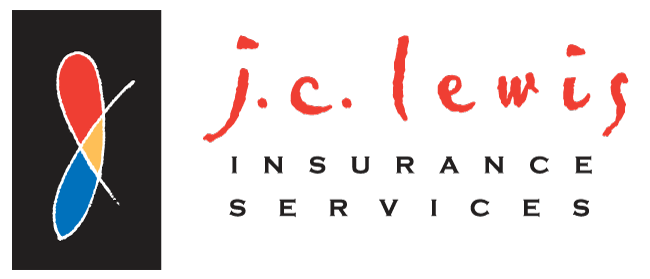Purchasing health insurance can be a daunting task for any business, especially for small businesses striving to provide adequate coverage while managing costs. In California and Arizona, where the healthcare landscape presents unique challenges and opportunities, it’s crucial for businesses to avoid common pitfalls. Here are the most common health insurance mistakes that business owners make and how you can avoid them in your company.

a calligraphy pen, a tiny red rotary phone, and a piece of paper that says “health insurance”
Small Business Health Insurance Is A Valuable Asset
In today’s competitive job market, offering health insurance is a crucial benefit for attracting and retaining top talent. But for small businesses, navigating the complexities of health insurance plans can be a minefield. Fortunately, it is possible to be aware of some common mistakes businesses make and helpful tips to ensure you offer the right coverage while staying within budget.
Let’s take a quick dive into the top health insurance mistakes small business often make.
Choosing The Wrong Plan Type
Many small businesses fall into the trap of selecting health insurance plans that do not align with their employees’ needs. This can lead to dissatisfaction and higher out-of-pocket costs for employees, which ultimately impacts productivity and retention.
How To Avoid It:
- Assess Employee Needs: Conduct surveys or hold meetings to understand the specific healthcare needs and preferences of your employees. This will help you choose between HMOs, PPOs, or high-deductible health plans with health savings accounts (HSAs).
- Consult an Expert: Engage with an insurance brokerage firm specializing in small business health coverage. They can provide valuable insights and help tailor a plan that suits your business and employees.
Understanding The Total Costs
The sticker price of premiums often obscures the true cost of health insurance. Businesses sometimes overlook additional expenses such as deductibles, copayments, and coinsurance, leading to budget shortfalls. While cost is a significant factor, focusing solely on the cheapest plan can also backfire.
How To Avoid It:
- Full Cost Analysis: Consider all aspects of the plan, including premiums, deductibles, copayments, and out-of-pocket maximums. Use this comprehensive analysis to budget effectively.
- Transparent Communication: Ensure that employees understand the total cost of their healthcare, not just their share of the premium. This helps them make informed choices and reduces unexpected expenses.

Failing To Stay Compliant With Regulations
Health insurance regulations are constantly evolving, and non-compliance can result in hefty fines and legal issues. In California and Arizona, there are state-specific requirements in addition to federal laws.
How to Avoid It:
- Stay Informed: Regularly review updates from regulatory bodies such as the California Department of Insurance and the Arizona Department of Insurance and Financial Institutions.
- Professional Guidance: Work with a knowledgeable insurance broker who stays abreast of regulatory changes and ensures that your business remains compliant.
Not Providing Sufficient Coverage
Offering a single health plan might seem cost-effective, but it can alienate employees with diverse healthcare needs. Insufficient coverage options can lead to higher turnover rates and decreased employee satisfaction. And some small businesses may be tempted to skip health insurance due to perceived costs, but this can be a short-sighted decision.
California and Arizona have unique employer health insurance requirements:
- California: Under the ACA (Affordable Care Act), California has a health insurance mandate for employers with 50 or more full-time equivalent employees. These employers must offer affordable health insurance or face potential penalties.
- Arizona: Arizona currently does not have a health insurance mandate for employers. However, all employers with 50 or more full-time employees are required to offer some form of health insurance benefit. This means that you may face penalties if you do not offer health insurance. It’s crucial to stay updated on local regulations.
How to Avoid It:
- Diverse Plan Offerings: Provide multiple plan options to accommodate different needs and preferences. For example, offer both HMO and PPO plans, and consider adding dental and vision coverage.
- Voluntary Benefits: Supplement core health insurance with voluntary benefits like critical illness insurance, accident insurance, and wellness programs. These can enhance the overall benefits package without significantly increasing costs.
Ignoring Wellness Programs
Wellness programs can reduce healthcare costs and improve employee health, but many small businesses overlook these initiatives due to perceived complexity or cost.
How to Avoid It:
- Incorporate Wellness Initiatives: Start with simple wellness programs such as flu shots, health screenings, and fitness challenges. Gradually expand to include more comprehensive programs like smoking cessation, weight management, and mental health support.
- Leverage Technology: Use apps and online platforms to promote and manage wellness programs efficiently. This can increase participation and make the programs more accessible.

Inadequate Employee Communication
Failing to effectively communicate health insurance options and benefits can lead to confusion and dissatisfaction among employees. Misunderstandings about coverage can result in underutilization of benefits and unmet healthcare needs.
How to Avoid It:
- Clear and Regular Communication: Use multiple channels (emails, meetings, webinars) to explain health insurance options, benefits, and changes. Provide detailed, easy-to-understand materials that employees can reference.
- Employee Education: Offer workshops or one-on-one sessions where employees can ask questions and receive personalized advice about their health insurance choices.
Overlooking Employee Feedback
Ignoring employee feedback on health insurance can lead to persistent issues and a lack of trust in the management. It’s essential to listen to employees and make adjustments based on their experiences and needs.
How To Avoid It:
- Regular Surveys and Feedback Mechanisms: Implement regular surveys to gather employee feedback on their health insurance plans and overall satisfaction.
- Act on Feedback: Show employees that their feedback matters by making adjustments and improvements based on their suggestions.
Choosing The Right Broker In California And Arizona
When selecting a broker in California or Arizona, look for one with experience working with small businesses in your industry. Here are some additional factors to consider:
- Local Expertise: An understanding of the specific health insurance landscape in California and Arizona is crucial.
- Carrier Relationships: A broker with strong relationships with multiple carriers can offer you a wider range of plan options.
- Service and Support: Choose a broker who provides ongoing support throughout the year, not just during enrollment.

Trusted Guidance To Help You Avoid Costly Health Insurance Mistakes
Health insurance is a critical component of employee benefits and can significantly impact a small business’s ability to attract and retain talent. By avoiding these common mistakes and adopting a proactive approach, businesses in California and Arizona can offer competitive and effective health coverage that meets their employees’ needs while staying compliant and within budget.
Remember, a well-designed health insurance plan can be a win-win for both your business and your employees. Working with a specialized insurance brokerage firm like J.C. Lewis Insurance Services can provide the expertise and support needed to navigate this complex landscape successfully.
Contact us today at 866-745-9555 or email us at support@jclis.com today.

